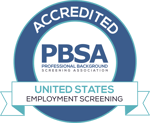
In April 2015, Apple found the bad apple in the bucket and didn’t like the taste. The corporation quickly rescinded a blanket policy not to hire felons for their new headquarters construction project in California.
Apple told Fortune that they “…recognize that this may have excluded some people who deserve a second chance. We have now removed that restriction and instructed our contractors on the project to evaluate all applicants equally, on a case by case basis, as we would for any role at Apple.” According to Apple, this policy was unique to the Campus 2 project and not aligned with other hiring policies.
This quick change of pace may have helped Apple avoid a costly discrimination allegations and an increasingly familiar EEOC battle. Other employers haven’t fared as well. In early September, BMW settled with the EEOC and has agreed to pay $1.6 million as well as provide jobs to the alleged discrimination victims.
Although the charges in EEOC v. BMW differ somewhat to the Apple situation, the lesson is still drawn from same foundations: Ban the Box and the EEOC’s recommendations on Individualized Assessment.
In short, when using criminal records for the purposes of employment it is important to consider several factors when making your decision. Is this a conviction or an arrest charge only? Is the conviction related to the job in question and does it pose a risk to people and the business? How long has it been since the offense and what type of lifestyle has the applicant led? Criminal history aside, how did the applicant compare in the interview process until I had this information and how much of an impact should the criminal history have?
Ultimately, the employer will have to decide. In some cases, the answers to these questions will help employers make a clear hiring choice. However, other situations may require deeper investigation and possibly a conversation with legal counsel.
If there is one clear takeaway from Apple and BMW, it’s this: If your employment background check policy leaves no room for consideration and is pass/no pass, without an equally clear business justification you’re policy is likely taking on unnecessary risk.
It’s like bobbing for apples. You don’t just stick your face in the water and pull up an apple! You consider your approach and make a thoughtful initial selection. You ebb and flow along with the apples as your options float around until you pull up a winner!
Choice Screening encourages employers to make informed hiring decisions through the use of comprehensive background screening.
Have you been impacted by regulations and cases, such as Apple, BMW and Ban the Box? Leave a comment and tell us about it!


